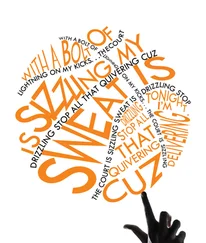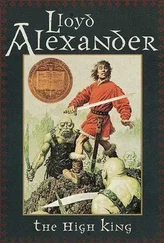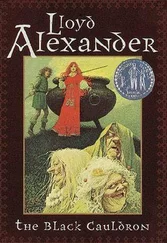“What happened to my uncle?”
“Your aunt and I tried to reassure him that Germany would go on without Hitler, but he didn’t believe it. I could see what was happening, but I couldn’t stop it. He hanged himself from a bridge. The Nazi flag was draped around his body.”
I lowered my head as I paced, shamed by my uncle’s actions. “He would be alive today if it hadn’t been for that evil man.” I hadn’t told Karl everything about my days in the bunker and I wondered how he would react. I couldn’t broach the subject. “Where did you stay before you traveled south?”
“I made my way to Berlin and stayed there, before conditions became intolerable. I took clothes I found in abandoned buildings and stood in breadlines. Many days I went hungry because it was too dangerous to be seen. I had to be careful because people were hanged for stealing. One time, I took the coat off a dead man. He didn’t need it anymore. The hardest part was avoiding soldiers. I hid most of the time until I knew I had to leave.”
I sat again on the bench and studied Karl’s face. It was leaner; worry lines spread outward from his mouth and eyes, furrowing deeply into his skin. Both of us had lived a full life in the year we’d been apart. I wanted to ask him another question, but was afraid to hear the answer. He looked at me as if he knew what I was going to ask.
“I looked for your father,” he said. “I never found him.”
The guard approached and spoke to us in broken German. Our time was up. We had to return to our respective “homes.” I held up my hand, a signal for a moment longer.
“I have something to tell you,” I said to Karl. “How much do you love me?”
“You know the answer. Enough to wait a lifetime.”
I trembled and held on to his hands. “I was raped by Russian soldiers. I can’t have children. If that’s what you want, perhaps—”
He looked at me sadly, but thwarted my words with a finger to my lips. After a few moments, he said, “I married you. I’ve taken you for life. Nothing you say can change that.”
The guard signaled he had had enough of our delays and he made us leave the table. We looked at each other as we were led away.
* * *
Two years later, Karl and I were released by the Americans. On that day, we started our second life. Our first night together we made love and talked until dawn. I told him everything.
Berlin, 2013
Did I kill Hitler? Now you know the answer. I only wish it could have been sooner.
Before the Soviets began the blockade in 1948, I traveled to Berlin and made my way through the sector to my old neighborhood. The block where my family had lived was still in rubble. I asked a few people if they had heard of my father, but they shook their heads and looked at me blankly.
I made my way through the streets to Irmigard’s old apartment. Three families were living there because the building still had walls and floors, although there was only the woodstove and no running water, much as it had been when I was there. I asked if I might see the room where Irmigard’s family had lived. A nice woman and her young son welcomed me in. The apartment looked the same, only the current residents had brought in their few belongings.
“I lived here early in 1945,” I said.
“What’s your name?” the woman asked.
“Magda Weber. Ritter was my maiden name. Are you from this neighborhood?”
“No. We came looking for my husband, a soldier, and ended up here. We were fortunate to find this shelter.” She frowned and then sat in a rickety chair. “It isn’t much, but it’s all we have.” She paused and studied me. “If you lived here you must know something about this place. What happened? Every day I wonder because I feel their presence.”
I looked at her with alarm. “Who?”
“Spirits of the dead. The war has caused so many to walk the earth, so many horrible stories remain untold.”
“I would tell you, but—” I pointed to her son.
“Rolf, go into the front and stay until you’re told.”
The boy reluctantly left us and closed the French doors that had muffled our screams that terrible night. I told her the story and she wept.
“The house is filled with tragedy,” she said. “Rolf,” she called out, “bring out the suitcase that was left here.”
The doors soon opened and the boy dragged a beat-up suitcase across the floor. The woman lifted it to a table so I could inspect it. Her eyes glistened with tears. “It was buried in a corner, covered by a bloody mattress. Your name is written in pen inside. I kept it, thinking that one day the owner might return.”
“Thank you,” I said, and clasped her hands. “What happened here was no more tragic than what happened to others.”
“It had been rifled through,” the woman said apologetically. “I hope you will pardon me. I pushed everything back inside and closed it.”
I hugged her and then opened the lid. I had forgotten that years ago I’d written Magda Ritter in blue pen on the inside. My watch had disappeared, but a few dresses and some undergarments still remained. And beneath them lay my stuffed monkey. It had remained in Berlin waiting for my return. I clutched it to my chest and cried.
“Mother,” Rolf said, “the lady is crying over a toy.”
The woman nodded and said, “It’s much more than a toy. You will cry someday—over a memory.”
I’ve cried many days over memories. I never found my father. I heard that Cook had been captured by the Russians. She disappeared from my life after I left her on the tracks beneath Berlin. Karl died in 1995 from an aneurysm. We, of course, had no children, but we spent many happy years together. I went on with my life and never remarried. No man could replace Karl.
As I consider what happened to me as I approach the end of my life, I give thanks for what I’ve learned. I want to share my knowledge with others. What happened in Germany in those terrible years must never happen again. As much as humanity strives for good, cruelty remains.
I, Magda Ritter, was one of fifteen women who tasted food for Hitler so he would not be poisoned by the Allies or traitors to the cause. As far as I know, only two attempts to poison him were made—one by Ursula Thalberg, the other in the Great Hall. He lived much longer than he should have.
As I said in the beginning, so it is in the end. The secrets I held so long inside needed to be released from their inner prison. I have been punished enough by the past. Now that you’ve read my story perhaps you will not judge me as harshly as I’ve judged myself.
The idea for The Taster came from an Associated Press news story of April 26, 2013. The report, by Kirsten Grieshaber, chronicled the life of Margot Woelk, a taster for Adolf Hitler. Ms. Woelk had kept her previous profession a guarded secret until she turned ninety-five. She told the reporter that for decades she had tried to shake off the memories of her days with Hitler but that “they always came back to haunt me at night.” The Taster is not an account of Ms. Woelk’s life, although I based several scenes in the novel on her experiences. Nor is the novel intended to be a veiled biography of her life.
I have been interested at various times in reading about the Nazi Party, Adolf Hitler and World War II. When I told a colleague about my intention to write The Taster, she said she hoped I would refrain from turning it into a celebration of fascism and the German dictator’s life. I assured her that I had no such intention. I’ve met so many people who have been fascinated by Hitler—not because they admired the man who was responsible for the death of millions but because they, like me, wondered how this terrible tragedy could have happened. And, more important, how we could prevent a similar occurrence from happening in the future. Unfortunately, as we know, history repeats itself. What were the factors that led to the rise of fascism and its embrace by most of the German people? How did Hitler fool the world? These are complex questions that historians, sociologists and psychologists have struggled to answer. I make no pretense at providing answers. If I, as an author, have allowed the reader to remember, to never forget, then I have succeeded in my task.
Читать дальше












